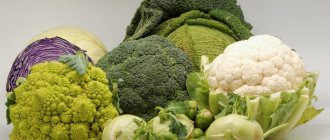Why do you crave spicy foods during pregnancy?
Unusual gastronomic desires during pregnancy are explained simply. Their cause is hormonal changes occurring in the body of the expectant mother, affecting appetite and taste preferences.
There is also an opinion that cravings for spicy food appear due to a deficiency of hydrochloric acid in the stomach, which is necessary for normal digestion. In this case, the body needs additional stimulation, which spicy foods can provide.
Another theory states that the desire to eat something spicy indicates increased cholesterol levels in a pregnant woman. If you doubt whether your blood counts are normal, you can check this assumption by taking the appropriate test. If the problem is confirmed, the woman should reconsider her diet and start following a special diet.
But still, situations when expectant mothers want spicy food due to health problems are extremely rare. In most cases, this is a normal whim of the pregnant body.
What are the consequences of eating spicy foods?
There is statistical information in the world that among other taste vagaries during pregnancy, spicy is in third place after salty and sweet. Be that as it may, here's what you should know about spicy foods.
Of the minuses:
- provokes heartburn, flatulence;
- causes thirst;
- may cause nausea;
Important! Excessive water consumption is contraindicated for expectant mothers, as it leads to swelling.
- complicates the work of the filtering organs (kidneys and liver);
- irritates the mucous membrane of the stomach and intestines (and these are colitis, gastric and intestinal ulcers, diarrhea);
- is an invigorating agent, which means insomnia is one of the possible consequences of eating spicy foods;
- increases the risk of allergic reactions (such as choking, dizziness, fainting, skin rashes, runny nose).
Pros:
- fights parasites;
- strengthens the immune system;
- increases the production of hydrochloric acid in the stomach (very useful for weak acidity of gastric juice);
- activate blood circulation;
Important! Women with low blood pressure have nothing to fear, but hypertensive patients should exercise caution.
- participates in the process of lowering cholesterol in the blood;
- prevent depression, because they promote the body’s production of serotonin - the so-called “hormone of joy”;
- partially suppresses cancer cells (in particular, red chili pepper is rich in capsaicin, a substance that prevents cancer);
- sometimes helps get rid of nausea.
Can pregnant women eat spicy foods?
Is it possible to eat spicy food during pregnancy or is it better for the expectant mother to limit herself to such food? In small quantities, spicy dishes cannot harm a woman and her baby. It is even possible to benefit from such a gastronomic hobby. There is information that spicy foods contribute to:
- reducing nausea during toxicosis;
- improving blood circulation;
- acceleration of metabolic processes;
- getting rid of cholesterol plaques;
- the production of serotonin (the hormone of joy), which is responsible for a good mood.
In addition, scientists claim that eating dishes containing hot peppers helps prevent cancer. Therefore, if you do not feel discomfort from spicy food, you should not deny yourself the pleasure. At the same time, it is better to choose the most natural products and not abuse them.
Use of ginger during pregnancy
Ginger is a perennial herbaceous plant. The spice is used both in the treatment of various diseases and in cooking. Ginger normalizes sleep, helps strengthen the immune system, and improves metabolism.
The root of the plant contains the following beneficial substances:
- iron;
- phosphorus;
- magnesium;
- linoleic acid;
- B vitamins;
- oleic acid;
- vitamin E.
Drinks containing ginger help with colds. They help you cope with headaches and depression, and help improve memory. Ginger improves skin elasticity and relieves heaviness in the stomach.
If a woman has early toxicosis, it is recommended to grate the fresh root of the plant on a grater with fine holes. 20 grams of the resulting pulp are transferred to a separate bowl. Juice squeezed from half a lemon and 20 grams of honey are added to it. The mixture must be poured with a liter of boiling water. The product must be infused for at least thirty minutes. The resulting drink should be consumed before meals. The product alleviates the manifestations of toxicosis. The drink is also used in the treatment of colds.
What spicy foods are acceptable?
Not everything spicy during pregnancy is equally beneficial. Among the spices allowed for expectant mothers is curry. It is a spice native to India, made from dried turmeric root and has a powdery consistency.
It has a mildly pronounced pungent taste and a specific spicy aroma. Curry is added to many meat dishes, vegetable stews, and is also used in the preparation of sauces.
The spice is rightfully considered healing and is recommended for women suffering from pain in the joints and bones, which often occurs due to increased stress during childbearing.
Also, if you really want something spicy, you can drink drinks containing cardamom or ginger. The plants are completely safe for pregnant women, and when added to a morning dose of tea, they help eliminate the manifestations of toxicosis. Read more about the effect of ginger on pregnancy→
You can season salads, boiled potatoes or meat with ground black pepper. This spice is rich in chromium, which expectant mothers need to maintain normal blood pressure levels. Black pepper is also beneficial for women who experience high blood sugar during pregnancy.
If the period of craving for spicy foods occurs in spring-summer, you can satisfy your desire with the help of fresh green onions. Its shoots contain folic acid, which is necessary for the normal formation of the baby's organs.
Strict contraindications
The most severe contraindications include the following:
- difficult-to-control hypertension (eating spicy foods will increase blood flow, and this will lead to a sudden increase in blood pressure);
- gastritis (acute cases will intensify the disease and lead to relapse), as a result, it is difficult to endure, and it is impossible to treat with medications during pregnancy;
- increased swelling of the body (with spicy foods you will make the body thirsty, you will start drinking a lot of water, the swelling will increase, the load on the heart and kidneys will increase);
- presence of allergies.
In addition, do not forget that your belly also reacts to all the food that enters the body. The baby will not tell you about his feelings, but you must understand: the baby definitely deserves to be taken care of right now. And they were not forced to treat themselves to dishes with increased “spiciness”.
Situations when it is better to abstain from spicy foods
Whether spicy food is harmful during pregnancy largely depends on the woman’s health. Contraindications to the use of spices are:
- Increased stomach acidity, heartburn, peptic ulcer. Irritation of the gastrointestinal mucosa by burning foods aggravates existing problems.
- Tendency to edema. Since spicy food causes severe thirst, leading to the consumption of large amounts of liquid, eating such food is not recommended for women who monitor their drinking regime and try to get rid of edema.
- Diarrhea and hemorrhoids. Spicy foods can provoke increased intestinal motility, which is undesirable for the listed conditions.
- Cholelithiasis . Burning food causes increased production of bile and can provoke the movement of stones and blockage of the ducts.
Contrary to popular belief that spicy foods during pregnancy can cause labor ahead of time, spices themselves do not pose a threat. But their abuse causes increased gas formation and irritation of the gastrointestinal tract, which can affect the tone of the uterus. In this regard, spices and peppery dishes are strictly prohibited for women in the third trimester of pregnancy.
If you feel well and have no contraindications, you don’t have to deny yourself spicy food. After all, a bad mood due to constant restrictions is unlikely to benefit mother and baby. But if spices are prohibited for you for health reasons, then you shouldn’t risk it. In any case, before changing your diet, you need to coordinate your actions with the doctor who is managing your pregnancy.
Author: Yana Semich, especially for Mama66.ru
Absolutely forbidden
In order to preserve the health of the child, a woman should give up bad habits and become familiar with the restrictions that jeopardize the favorable course of pregnancy.
In the first trimester, prohibitions are associated with the formation of the fetus. At this stage, the formation of internal organs occurs. Pathological disorders are associated with an incorrect lifestyle and ignoring warnings.
In the early stages
To protect your baby from negative influences, you need to know what pregnant women should not do in the early stages.
- Drink alcohol or smoke cigarettes. This is an iron taboo. Drinking alcoholic beverages threatens the child with mental retardation, hypoxia, and weight loss. In the first weeks, the risk of miscarriage is greatest.
- Undergo fluorography. Despite the low radiation doses, the fluorograph has an effect on the child. Pregnant women are temporarily excluded from the procedure, but can be prescribed if there is serious suspicion of the development of the disease.
- Vaccinations. Vaccinations can be done if the benefit to the mother outweighs the risk to the fetus. Injections against tuberculosis, rubella and mumps are prohibited.
- Consume raw, unprocessed foods, fatty, spicy foods. Heavy foods negatively affect the functioning of the liver and kidneys.
- It is necessary to exclude raw seafood from the diet. They contain mercury, which damages the baby's brain.
- Sweet and starchy foods are limited. In the first months of pregnancy, it is important to choose low-calorie foods. Weight gain will further lead to leg swelling and difficult childbirth.
- Eliminate allergens - chocolate and citrus fruits.
During the rest of the period
In addition to the restrictions regarding the first months after conception, you need to remember that it is strictly forbidden for pregnant women.
- Wear heels. A shift in the center of gravity increases the load on the spine, increasing the risk of neuralgia and radiculitis. Uncomfortable shoes also cause swelling of the legs and varicose veins.
- The “leg over leg” position reduces blood circulation in the pelvic organs. This is fraught with hypoxia for the fetus.
- Long journey. A change of environment and transport conditions will negatively affect the condition of the pregnant woman.
- Forget about extreme sports. The release of adrenaline puts the child's life at risk. For him, taking an unjustified risk to his mother could lead to death.
- Stress negatively affects the formation of the fetus. A pregnant woman needs to be provided with a positive, calm environment.
Use herbal medicines with caution. Tansy, oregano, aloe and barberry increase the tone of the uterus.
Eating seaweed or sorrel in large quantities causes an imbalance in fetal development.








